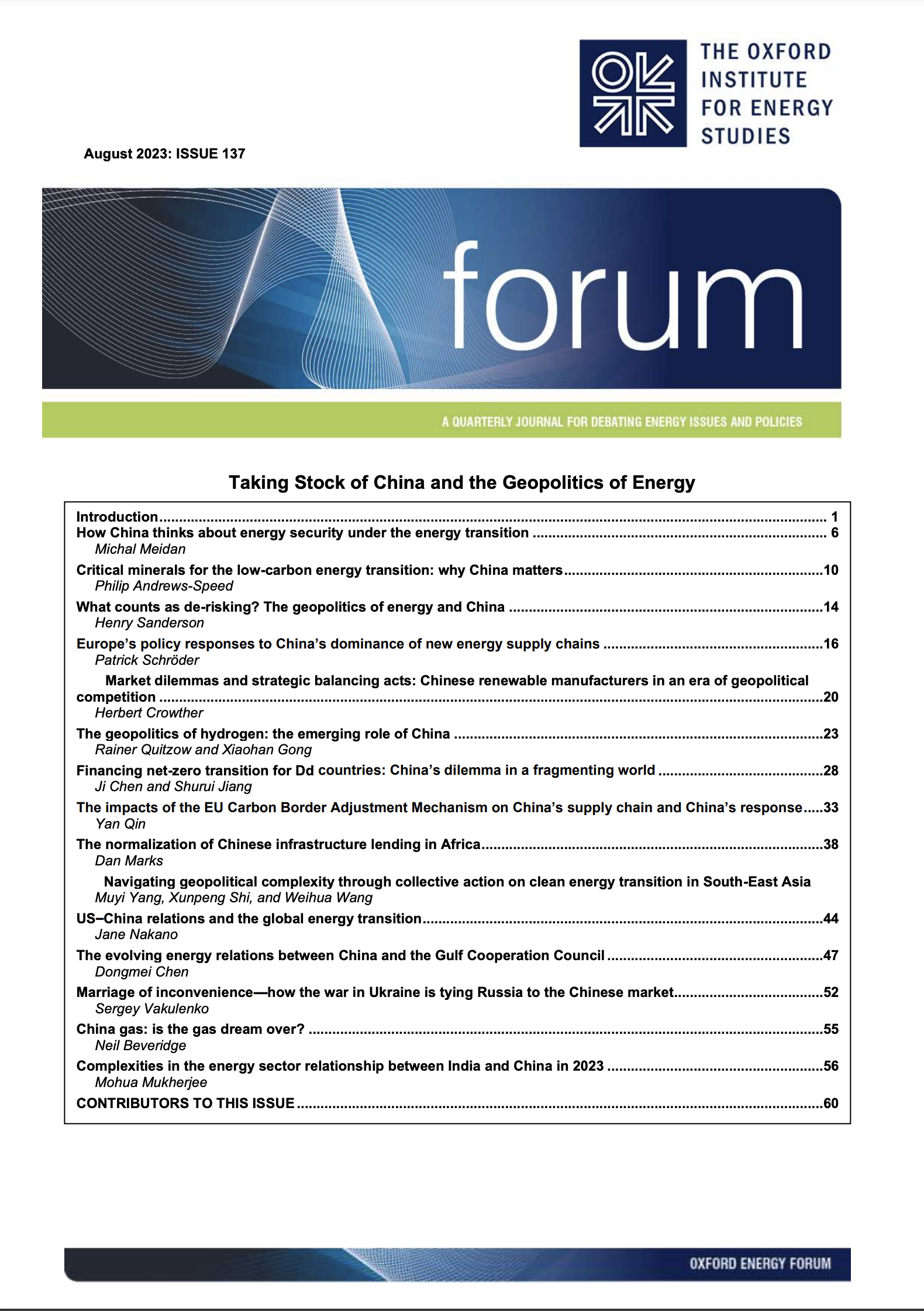Gathering momentum for the energy transition—supported by ambitious net-zero roadmaps by governments (EU, China, and
US) and multinational corporations—has sparked debate on what the energy map will look like in 30 years. For more than half a
century now, access to oil and natural gas has been at the heart of the geopolitics of energy; but with renewable technologies
set to dominate energy supply systems, relations between states will change, while economies and societies will undergo
structural transformations. This issue of the Oxford Energy Forum discusses the drivers and main features of the ‘old’ and ‘new’
geopolitics of energy. It assesses the power shifts that are unfolding, the winners and losers—both countries and
technologies—that are likely to emerge from this process, and the potential implications for global governance regimes. Our
authors ask whether the prospects of peak oil demand will dim the geopolitical forces shaping producer–consumer relations and
upend geopolitical arrangements which have been defining elements of regional power systems. They discuss the future of
natural gas in the energy transition, and whether producers are adapting their strategies. They ask: who will lead the race for
new technologies and supply chains? And how will US–China competition and coordination impact global efforts to meet the
Paris climate goals?

Fellow
Dongmei is a Research Fellow at KAPSARC with a focus on energy trade, energy investment and regional energy cooperation. She…
Dongmei is a Research Fellow at KAPSARC with a focus on energy trade, energy investment and regional energy cooperation. She has more than 20 years of experience in China’s energy and climate change policy development. Before joining KAPSARC, she worked at the Institute for Industrial Productivity (IIP) as a senior advisor and head of the China office, developing and disseminating best practices to improve industrial energy productivity. Before working at IIP, she worked at WWF China as director of the Climate Change and Energy Program, leading the design and implementation of the Low Carbon City Initiative in partnership with local Chinese governments and international networks. Before working at the WWF, she worked at China’s Ministry of Science and Technology, the Ministry of Water Conservation, and the Xinjiang Wind Energy Company.
Expertise
- Energy Trade
- Energy Investment
- Energy Politics
- Regional Cooperation
Publications See all Dongmei Chen’s publications

Taking Stock of China and the Geopolitics of Energy
Gathering momentum for the energy transition—supported by ambitious net-zero roadmaps by governments (EU, China, and…
14th August 2023
Systematically Mapping Innovations in Electricity Using Startups: A Comprehensive Database Analysis
Gathering momentum for the energy transition—supported by ambitious net-zero roadmaps by governments (EU, China, and…
7th August 2023